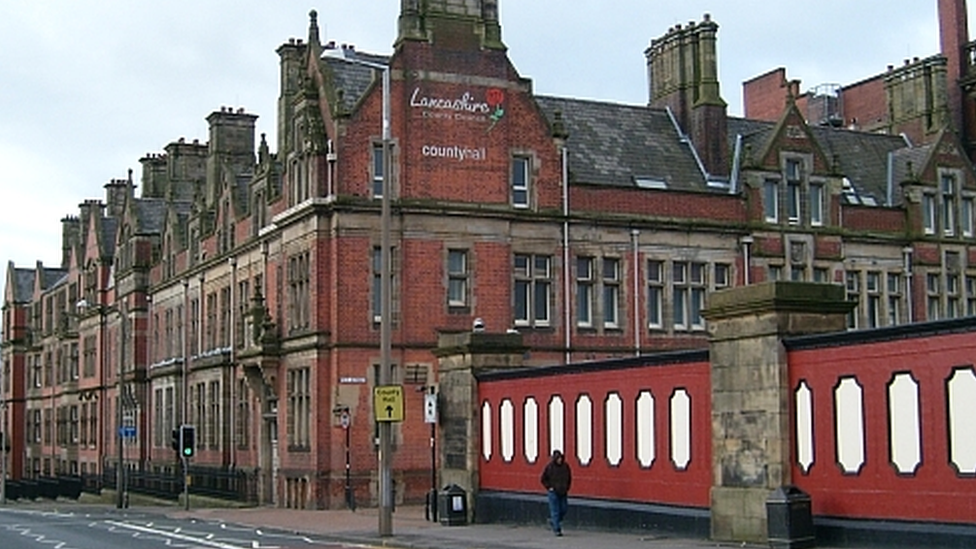Lancashire councils face 15-to-1 devolution dilemma
- Published

The leader of Lancashire County Council is calling for a combined authority
The big fear in Lancashire has always been playing second fiddle to Manchester and Liverpool.
Jennifer Mein, leader of Lancashire County Council, has led the calls for a combined authority representing all 15 councils.
The big question, though, is whether they can all get along nicely with each other.
During the last 14 months, meetings have been held at the County Hall in Preston to hammer home the benefits of working together rather than in isolation.
Frustratingly for people like me, those chats have all taken place behind closed doors - oh to have been a fly on the wall.
Alas, I did not witness any of those full and frank discussions.
So it is hard to tell whether the prevailing sense of optimism about a combined authority is genuine - or merely designed for the cameras.
We shouldn't forget, though, that none of this is easy for the council leaders - it's all new territory.

Blackpool's iconic tower is a Lancashire landmark
A major bone of contention has been the need to somehow preserve local identities.
Plans to bring in boundary changes several years ago led to a right old scene - Lancastrians tend to be very precious about their own bit of the Red Rose county.
Those identities are an intrinsic part of Lancashire's unique make-up and, importantly, help councillors maintain close contact with their electorate.
Clearly, it is a source of concern for Stuart Hirst, the ebullient Conservative leader of Ribble Valley Council.
"Our default position is we want to preserve our independence," he says, simply. "We believe that Ribble Valley is a well-run successful local authority."
But the Labour leader of Hyndburn Council, Miles Parkinson, has always considered the realpolitik.
"Looking at Merseyside and Manchester, we have to compete with them, otherwise we wouldn't get sufficient funding from central government," he warns.
'Equal say'
While the decision by the Conservative leader of Wyre Council, Peter Gibson, to step away from the Combined Authority proposal does not scupper the plans entirely, it is not ideal for its backers, given how long the project has been talked about.
Mr Gibson has always being his own man, a practical politician for sure. He walked away for one simple reason - he does not think his area will benefit.
Chorley leader, Labour's Alistair Bradley, fundamentally disagrees, and I get the feeling they won't be swapping Christmas cards this year.
Previously, the pro-camp had been concerned about the Blackpool and Blackburn unitary authorities wanting to continue on their own, but this has not come to fruition.
Blackpool Council's leader Simon Blackburn is on board, albeit with some reservations.
"For it to work, there's got to be some basic rules of governance - we've got to make sure everyone has got an equal say," he says.
While Lancashire's plan for a combined authority has yet to be approved by the government, Ms Mein is in bullish mood.
"This is the way forward and for us we have to be able to make it work because there isn't an alternative," she says.
"And what's good enough for Manchester is good enough for Lancashire," she adds of the biggest plan to reform local government in more than 40 years.
People are still arguing over those changes, so today's situation should perhaps come as no surprise.